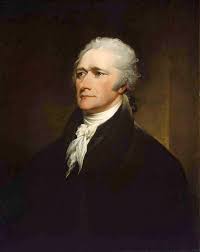
Introduction
Alexander Hamilton, one of the Founding Fathers of the United States, is recognized for his pivotal role in shaping the American financial system and the federal government. His life story, marked by resilience and ambition, provides vital insights into the foundation of American democracy. As debates about governance and economic policy continue to evolve, understanding Hamilton’s contributions remains highly relevant in today’s political and economic climate.
Early Life and Rise to Prominence
Born on January 11, 1755, in Charlestown, the capital of Saint Kitts and Nevis, Hamilton faced a tumultuous early life characterized by poverty and loss. After the untimely death of his father and the abandonment by his mother, he was sent to the mainland to pursue his education. His exceptional intellect led him to study at King’s College in New York, where he wrote a series of essays that attracted the attention of political leaders.
During the American Revolutionary War, Hamilton served as an artillery officer and aide-de-camp to General George Washington. His leadership qualities and strategic insights quickly placed him in a prominent position, reinforcing his political aspirations.
Contributions to the U.S. Government
After the war, Hamilton became a key figure in drafting the Constitution. He noted the need for a strong central government to unify the thirteen colonies. He authored 51 of the 85 Federalist Papers, articles promoting the ratification of the Constitution. His arguments stressed the importance of a powerful federal government to manage economic affairs and maintain order.
In 1789, Hamilton was appointed the first Secretary of the Treasury. His innovative financial policies helped lay the groundwork for the American economy, advocating for the establishment of a national bank and the federal assumption of state debts. Hamilton’s vision for America emphasized a commerce-oriented society, which continues to influence economic discourse today.
Legacy and Modern Relevance
Hamilton’s vision for the nation resonates profoundly in contemporary times. Economic policies and fiscal debates echo his theories about federal involvement in economic life. Additionally, his story has been popularized through the acclaimed musical “Hamilton,” which has renewed interest in his life and contributions among younger audiences.
Conclusion
Alexander Hamilton’s life exemplified determination and intellect, defining principles that helped establish the United States. As current discussions about governance, economics, and social equity unfold, Hamilton’s philosophies remain crucial for understanding America’s past and shaping its future. His legacy continues to inspire generations, reminding us of the enduring influence of visionary leadership.



